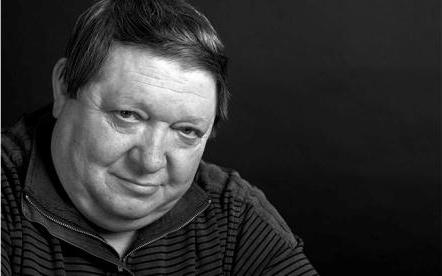The famous Russian writer Mikhail Uspensky recently left this world. He lived only 64 years. But his books remained, which many have yet to read.
Facts from the biography
The future writer, Uspensky Mikhail Glebovich, was born in 1950 in the ancient Altai city of Barnaul. The young man showed a rather early taste for literature, as well as a desire to realize himself in this direction. His first poetic publication took place in the provincial periodical, when Mikhail was only seventeen years old. This largely determined his future life path.
Mikhail Uspensky received his professional education at the Faculty of Journalism of Irkutsk University, one of the oldest and most respected educational institutions in Siberia.
In great literature
The path to success is rarely easy. Mikhail Uspensky, whose books are now recognized by both the literary community and the wider readership, felt like a writer only in 1988, when his first book, the collection of short stories The Evil Eye, was published in Krasnoyarsk. And before that there were many years of hard work, casual earnings and rare publications, mainly in Siberian periodicals. But the stories from the collection were well received by ordinary readers and literary critics. Some of them began to live an independent life - they were performed by pop artists of the colloquial genre.

This first major success was a good incentive for the writer to continue his work. And the ability to change the direction of the vector of their creative forces in the direction of science fiction, as well as what is commonly referred to as the term “fantasy”. At that time, this genre was not a widespread literary phenomenon. The audience was just beginning to get acquainted with the classic works of Tolkien.
Genre synthesis and semantic diversity
Mikhail Uspensky himself, whose books criticism most often referred to as fiction, refused to recognize clear boundaries between genres of literature. Such a separation, according to the author, significantly reduced the potential of the initial impulse to creativity, with which the writer opens a blank sheet of paper or touches a computer keyboard. A synthesis of different genres opens up completely new, previously unknown expressive possibilities for the creator. It was by the embodiment of these principles and approaches that such an atypical representative as Mikhail Uspensky showed himself most clearly in Russian science fiction. All the author’s books are so characteristic that they do not have a clear border between fiction and reality, between sophisticated fiction and everyday life.

It is with these qualities that they are of interest to a thoughtful reader who loves the intrigue and unpredictability of plot twists. The most popular among readers are such novels by Mikhail Uspensky as “Look into the eyes of monsters” and “March of the Ecclesiasts”.
In the science fiction community
Any writer is pleased to see that he is read and understood by the public to whom his works are addressed. But even more significant is to receive recognition from fellow writers working in the same direction and competing in the struggle for the attention of readers. Mikhail Uspensky in this sense was a happy person - his services to his favorite genre of literature were recognized in the community of science fiction writers at the highest level. Back in 1993, he was awarded his personal prize by the most outstanding coryphaeus of the genre - Boris Natanovich Strugatsky. The honorary regalia was called the Bronze Snail. And she was far from the only one. Moreover, Boris Strugatsky blessed his younger colleague in age and position in the hierarchy to continue the cycle of classic novels about the World of Noon. This story was called "Snake milk." It continues themes and images from the books of the Strugatsky brothers.

And the last significant work, which Mikhail Uspensky managed to complete, was the novel "The Feature of Kostya Zhikharev." This is a Slavonic fantasy book. The characters of Russian folk tales and ancient Slavic epics are widely represented in it.
Public position
For all the recklessness of immersion in the world of literary images, Mikhail Uspensky could not remain aloof from acute social conflicts and socio-political processes in Russian society. The intensity of political passions and contradictions reached a particularly high degree in the winter of 2011-2012, during the period of parliamentary and presidential elections. In these days, Mikhail could often be seen at rallies and marches of the opposition. He was one of the unconditional opponents of the existing political regime in the country. Moreover, it’s even a little surprising that in his literary works, Mikhail Uspensky almost does not mean his political preferences.